Members of FASA
The Beginning
On January 12th 2010 a terrible earthquake struck Port-au-Prince and the surrounding towns and villages. In all an estimated 300,000 people died and millions were left physically injured, traumatized and in make shift camps. Mdm Rea and her family were fortunate to survive the earthquake though 28 students and 2 teachers from SOPUDEP lost their lives. In the immediate aftermath Mdm Rea took to the streets in her own neighborhoods to help the injured including housing 42 people in her own home. Soon she began to receive small and large donations to help her and her family with the work of feeding and healing.
In March she received a donation of $3000 and decided to try something different. She asked the women in her organization what would they prefer, that she bought more rice and beans or that she divided the money and the women could try to start their own small businesses in the market buying and selling. They chose the latter and FASA [FASO 1.0] was born.
By 2013 it was clear that FASA could not continue in its original form which lacked clarity and organizational structure. Repayments of the small amounts of money were irregular and there was no structure or accountability for funds. Something had to be done. Mdm Rea sat down with what would become the ‘FASA 2.0 Steering Committee: SOPUDEP school administrator, Mr Billy Bataille, one of the directors, Mr Bouzier Dol and writer and advocacy expert, Ms Sokari Ekine who was living with Rea at the time. Together they would develop a new plan which they called FASA 2.0
The starting point for FASA 2 .O is a philosophy that each individual has to take responsibility for themselves and the notion of something for free is neither healthy nor sustainable. Thus both the women’s project and SOPUDEP School are framed within the idea of personal and collective responsibility.
Two things needed to be done so as to move forward with FASA 2..0: Design an organizational structure and a set of processes; and raise $10,000 in funds.
The first meeting took place with members of the Steering Committee, and the leaders of the six FASA groups including SOPUDEP members. After the first meeting only four groups attended subsequent meetings and it is these four that now constitute FASA 2: SOPUDEP staff, Le Phare, Mojub and OBMP
Problems Identified
Topics discussed by FASA members included: What were the problem areas; what improvement /changes needed to be made; how many members were really committed; what are the priorities; what is needed in human and financial resources to move forward.
Problems from FASA 1.0 [2010-1213]
It was agreed by all that the main problems for FASA 1.0 were:
1] It was created out of a crisis [the earthquake]
2] Insufficient credit available
3] The organization had no real structure and processes eg monitoring, criteria for membership, financial controls, too many non-payments of debts, insufficient training
4] Too many small vendors in an already overcrowded market place.
5] Lack of market research and vision – failure to identify niche and or new business ideas
6] the shop was not a great success :] not enough capital to build up stock; insufficient monies to buy straight from wholesaler so having to buy more expensively via a middle person; poor management; lack of stock; no funds to renew rent.
Conclusion: Members chose to create a new FASA ie FASA 2.0 [2014] this time with structures, rules and obligations, training, a more selective membership and to limit membership to 30 people.
FASA 2.0 :
The new FASA began with a limited membership of 20 people drawn from SOPUDEP members, La Phare, Mojub and OBMP. As they begin to build over time then new members would be brought on board after selection by existing members and with the help of the monitor.
In March 2014 a series of interviews took place of each existing member of FASA 1.0. Members were asked to present an outline of a business including a budget and their immediate financial needs. A brief session was held with a Micro-Credit organization in Haiti however this was not particularly helpful beyond what we, the steering committee, already knew so we did not pursue a second meeting.
28 members were chosen from the original group and each was interviewed privately by the members of the steering committee with questions around the kind of business, their budget, family members, and their existing financial commitments. In addition each member was visited at home by the monitor Blaise Nesly to further assess their ability to carry out the chosen business and repay the loan.
In June 2014 a sum of $10,000 was received from Rotary Club Barrie Canada and the first set of credit was handed out to 25 women and 3 men in August 2014. A further sum of $2,000 was received in December 2014 from David Jenkins to increase the credit available.
The overall assessment to date is that the majority of members pay on time with a few late payments. It can be safely said that all the businesses are doing well though some more successful than others.
With this in mind and after a six month period, the FASA Steering Committee held a meeting of all members with the aim of presenting the 5 most successful with a bonus of $100. [A $500 donation was received from 11 year old Chris Jenkins 11 who raised the funds from his school in Canada and this was divided amongst the five women.
The process to choose the 5 most successful businesses was as follows:
A panel of 4: The monitor, Blaise Nesly, Mdm Rea, Sokari Ekine and Director of SOPUDEP Mr Jean-Jacque Bataille. The moderator was SOPUDEP administrator Mr Billy Bataille and Hindy, a scholarship student took notes and photos from the event.
Each member was asked the same 4 questions and points between 1-5 were given for answers plus additional points for those who paid before the due date and those who paid on time. The five members chosen were:
Mdm Marie Anise Joissaint [pharmacy kiosk], Mde Solange Louis [ A Haitian speciality, fried pork] Mdm Destin Obenite [ Restaurant and drinks] Mme Ariste Marie Anne [ school supplies and cloths ] Mdm Tania Dol [groceries and cleaning products]. Each woman was then asked a further set of questions on why their businesses were so successful and what advice they could give to the rest of the group.
The first group of 4 women will finish repaying the initial loan on the 4th February and another on 5th March. We now have 75,000 Gourds in FASA ready to offer as new loans.
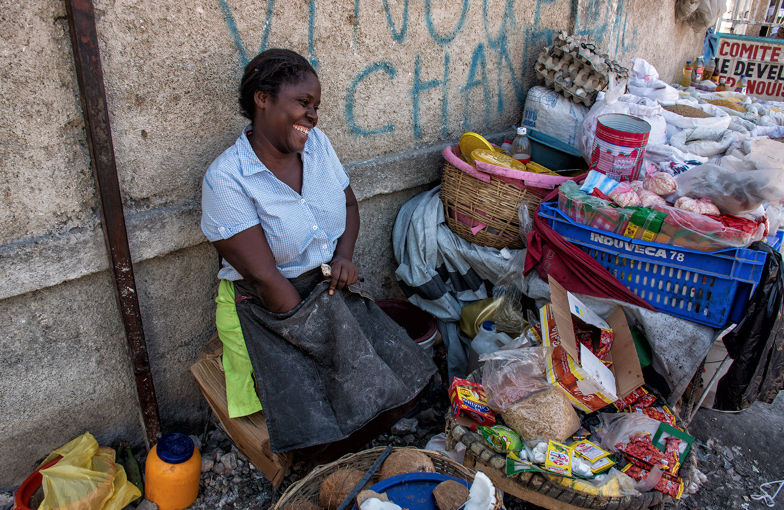
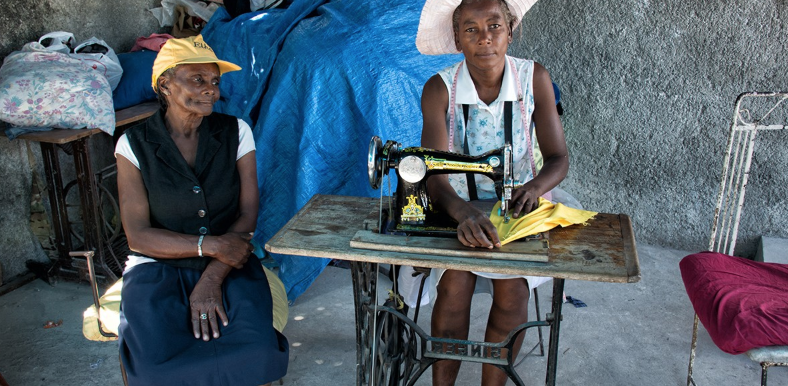
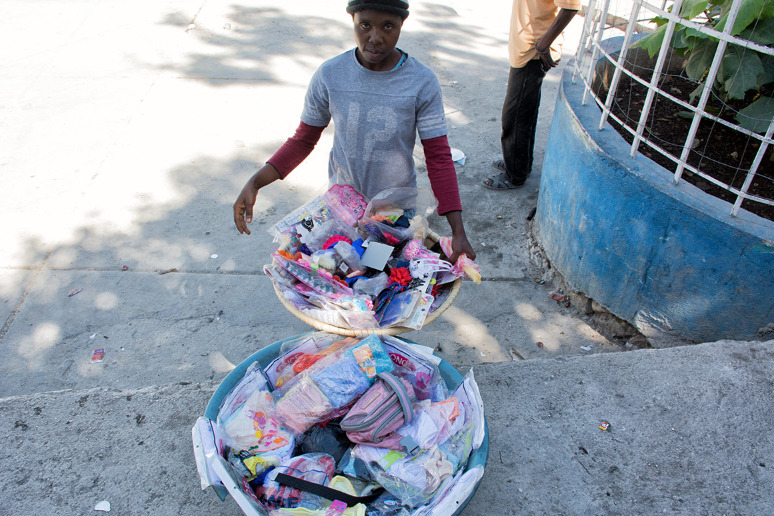
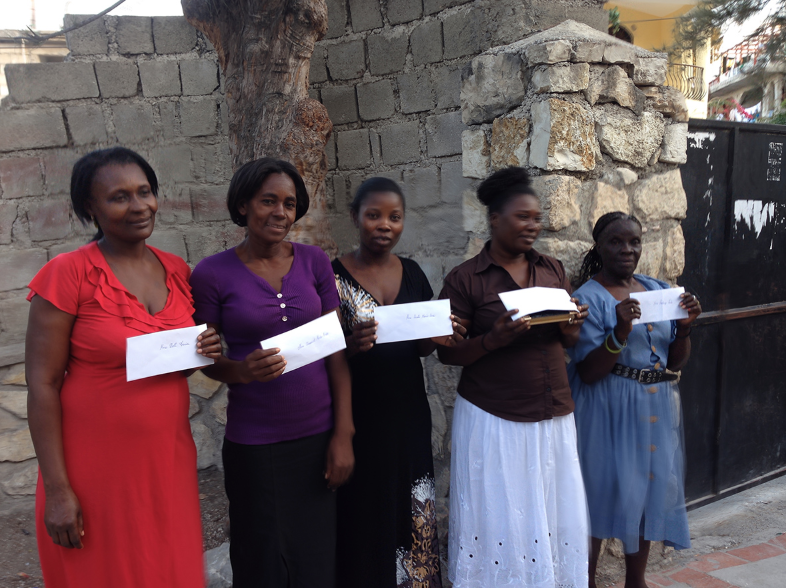
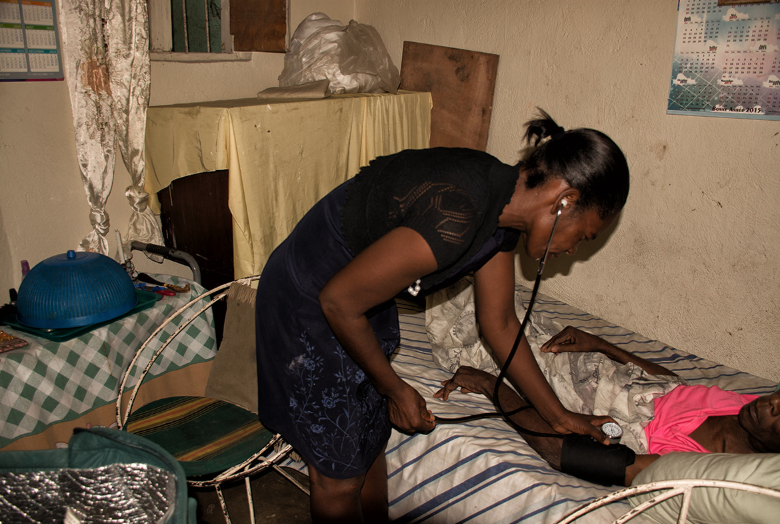
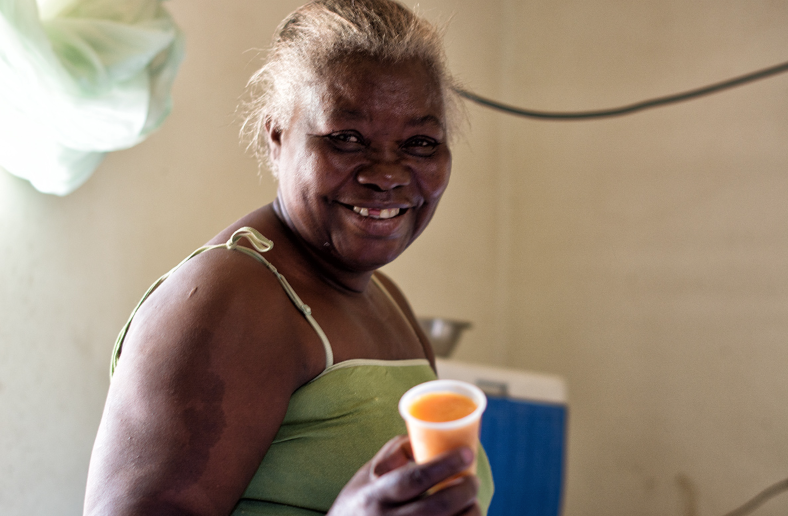
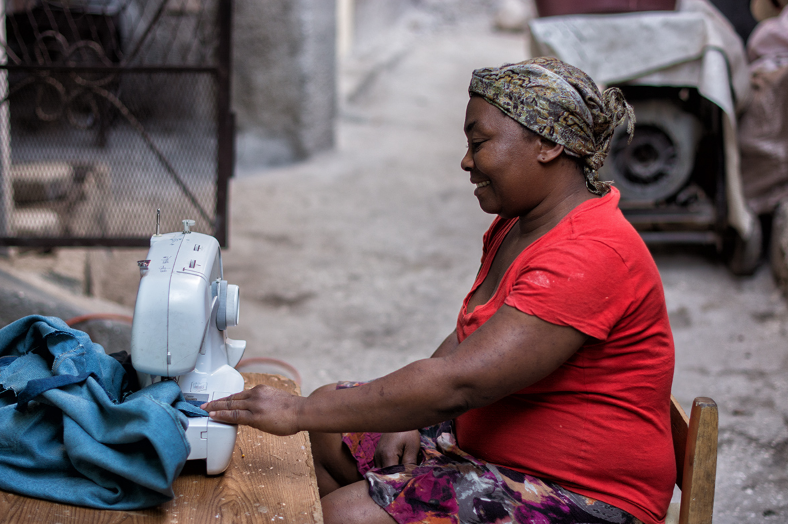
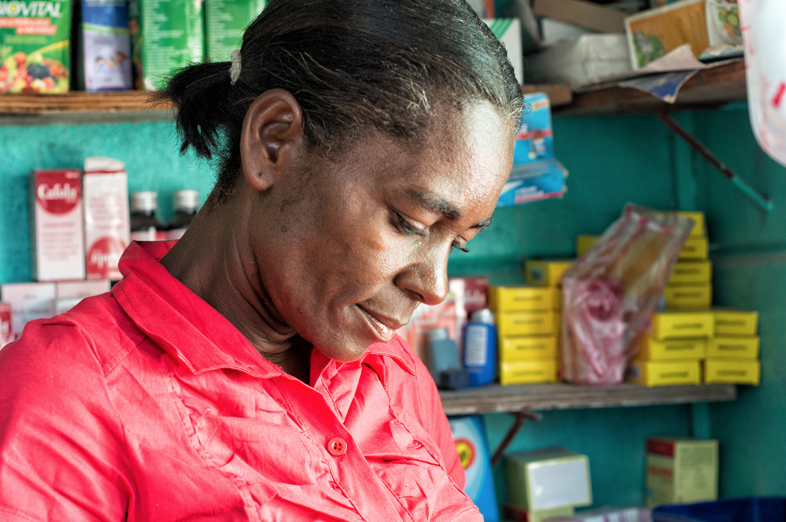
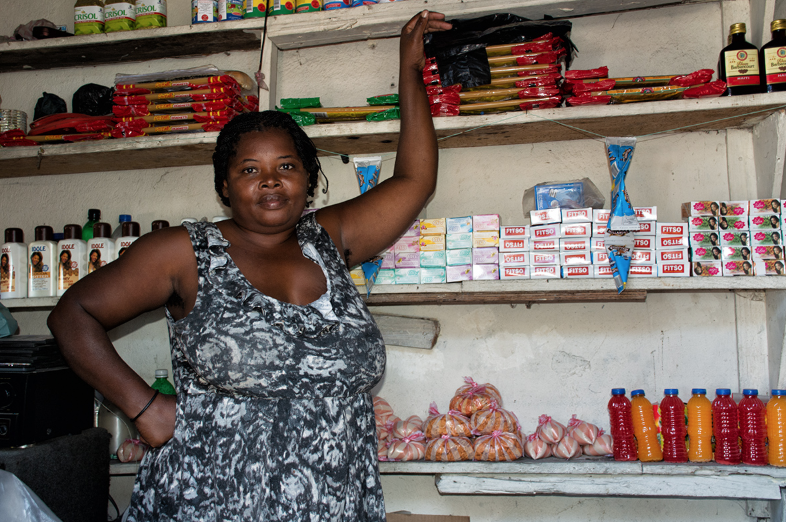
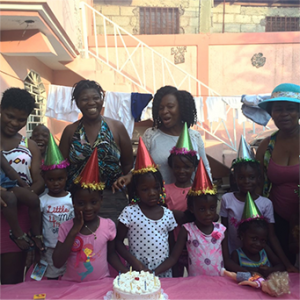
![SOPUDEP visit to Despagne [Grand Anse] & Maillou [Les Cayes]](https://www.sopudep.org/wp-content/uploads/2019/06/Screen-Shot-2019-06-28-at-10.45.21-PM-166x300.png)